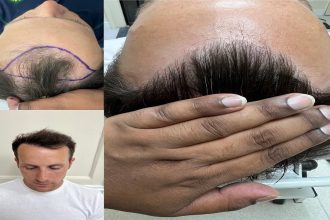Entering the field of therapy may seem like your true calling, but you must be prepared for its complexities if you decide to pursue it. There’s a sense of fulfillment and noblesse oblige in helping others through mental health work, but this noble path puts you at a crossroads between licensed and unlicensed therapy. Before you start your career, you must undoubtedly answer these questions: Should you pursue licensure, or is it possible to practice without a license? The reality is that both paths exist, each with unique responsibilities, limitations, and ethical considerations to keep in mind. Here, we’ll explore the nuances of the licensed and unlicensed therapy practice to help decide if the latter option is right for your future in mental health care.
What’s the Difference Between Licensed and Unlicensed Practice?
Getting the definitions right is the first step in differentiating these two practices. A licensed therapist is someone who has satisfactorily complied with their state’s educational, training, and examination requirements and has received official credentials to provide therapy. Licensed therapists have varying titles – Licensed Clinical Social Worker (LCSW), Licensed Professional Counselor (LPC), Marriage and Family Therapist (LMFT), or another title – which depend on their regions. An unlicensed practitioner, on the other hand, may have a degree in psychology, social work, or counseling but hasn’t yet completed or is still to complete all licensing steps. Still, unlicensed therapy practitioners thrive as coaches, peer counselors, or spiritual advisors, where their services are outside of the regulated mental health framework. Knowing the difference between these two practices would often lead aspiring therapists to pit licensed vs. unlicensed therapy practice and pick one path. Those who have grown comfortable with their freedom and away from the rigors of licensing and regulations can continue with unlicensed practice being coaches, counselors, or somatic practitioners. Individuals who want to dig deeper into mental well-being and diagnose and treat mental health issues can pursue licensed therapy practice and meet the state requirements needed for their profession. But there’s a third, less rigid way—transitioning from unlicensed to licensed therapy practice. This allows aspiring therapists to experience the best of both worlds by first evaluating their passion for therapy through unlicensed practice and committing to educational and licensing requirements later on.
Why Some Consider Starting or Staying Unlicensed
We have the freedom to make career choices, and those who follow the path of the therapy profession have reasons to pursue unlicensed practice. The first reason is the considerable time it takes to be licensed. States have varying requirements for postgraduate supervision hours and licensing exams, with some even taking years after graduation to become fully credentialed. For those who are in urgent need to start earning, it’s counterproductive to wait for their licences and do nothing, which leads to the decision to pursue unlicensed practice. Another reason is finding fulfillment in the unlicensed setup. Those who work as coaches or offer related services often realize that they make the most difference in an unlicensed setup and choose not to continue with getting a license. The growing preference for flexibility among young professionals is another reason, as a growing number of people prefer to design a more independent career path outside of traditional clinical models.
The Limitations of Unlicensed Practice
Strict boundaries are set for operating without a therapy license to prevent overlapping with those operating with licenses. In most jurisdictions, it is illegal to refer to yourself or work in the same capacity as a therapist, counselor, or psychologist unless you are licensed. Using these titles or offering services associated with them without proper credentials can lead to legal consequences, fines, and even being barred from future licensure. To set the limits, unlicensed practitioners cannot diagnose or treat mental health conditions or accept insurance reimbursements. They also cannot work in regulated healthcare settings (like hospitals or clinics) or supervise interns or associates pursuing licensure. Instead, many offer services under alternative titles such as “life coach,” “wellness coach,” or “mentor.” These services may be beneficial to clients, but should be differentiated from clinical mental health treatment.
The Benefits of Getting Licensed
So as not to sound one-sided, we’ll also discuss why getting licensed is beneficial for therapy practice. There’s credibility and trust, as clients and employers are more likely to seek help from credentialed professionals. In terms of opportunities, licensure opens doors to clinical positions, private practice, and insurance paneling. Licensed practitioners also gain access to a network of supervision, continuing education, and peer collaboration. They are also recognized by the law and have professional guidelines to follow in case of disputes. All these show that licensure enhances your career flexibility and provides assurance to the people you serve.
A therapy career is rooted in personal will and dedication to the profession. Whether you choose the licensed path or explore non-clinical avenues, the vital thing is to stay informed and intentional about your direction. Choosing the unlicensed practice is no less noble than a licensed one, as both aim to provide emotional and mental wellness. If you choose the non-licensed path, stay true to your responsibilities while keeping yourself within regulatory boundaries, and continue to be a significant contributor to the mental health ecosystem.














